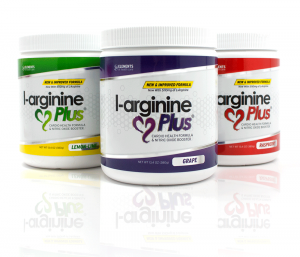We know that high blood pressure can lead to heart disease – but so can high cholesterol. Learn what the signs of high cholesterol look like.
Cholesterol is an essential substance in the body that travels throughout it thanks to the help of lipoproteins. The two major lipoproteins are low-density lipoproteins (LDL) and high-density lipoproteins (HDL). LDL is the “bad” type that can block your arteries, while HDL is the “good” type as it helps remove excess LDL.
When you have “high cholesterol” it means you have high LDL cholesterol levels, which can lead to heart disease. While high cholesterol can be a deadly condition, it doesn’t typically have any symptoms, making it more dangerous. Moreover, the only way to know if your cholesterol is too high is through a blood test.
If you have high blood pressure, are overweight, and/or smoke, you have a higher risk of developing high cholesterol. However, there are genetic conditions that can also lead to high cholesterol such as familial hypercholesterolemia. In these cases, you may have a yellow patch above the skin or a lump underneath the skin called xanthoma.
Coronary Artery Disease
 If you have high cholesterol, it can increase your risk of various health conditions, including coronary artery disease (heart disease). Heart disease is the leading cause of death in the U.S. and may cause symptoms such as chest pain. While symptoms may differ between men and women, other common signs include nausea, fatigue, jaw pain, numb extremities, and more.
If you have high cholesterol, it can increase your risk of various health conditions, including coronary artery disease (heart disease). Heart disease is the leading cause of death in the U.S. and may cause symptoms such as chest pain. While symptoms may differ between men and women, other common signs include nausea, fatigue, jaw pain, numb extremities, and more.
Stroke
High cholesterol is a result of plaque buildup in the arteries and it can affect the circulation to the brain. In other words, it may lead to a stroke, which is why it’s important that you know the symptoms. These can include sudden dizziness, loss of balance, facial asymmetry, confusion, slurring, numbness, blurry vision, sudden severe headache, and more.
Heart Attack
The American Heart Association (AHA) says that someone has a heart attack about every 34 seconds in the U.S. Plaque buildup due to high cholesterol can also result in atherosclerosis, a hardening of the arteries that has no symptoms. Furthermore, it can lead to heart attacks by causing blood clot formations that stop blood from flowing to the heart.
Peripheral Arterial Disease (PAD)
When plaque builds up in the arterial walls, it can lead to PAD, which blocks circulation to the kidneys, arms, stomach, legs, and feet. Some early symptoms include cramping, achiness, fatigue, leg pain during exercise, and discomfort in the legs and feet. Moreover, you can experience other symptoms as the condition progresses such as ulcers, paleness, leg cramps, thick toenails, and more.
 The Outlook
The Outlook
If you want to stay on top of your cholesterol health, you need to get regular screenings since high cholesterol doesn’t generally cause symptoms. Some treatment plants for controlling your cholesterol include exercise, dieting, and taking medications as necessary.
Furthermore, if you want to boost your heart health, you can take daily supplements like L-arginine Plus. Try L-arginine Plus along with your cholesterol treatment as a way to promote your overall heart health.

